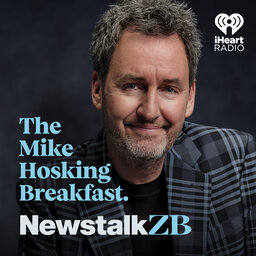Nick Tuffley: ASB Chief Economist on quarter three, upcoming GDP release
An economist says the third quarter was tough in pretty much every sector, for the New Zealand economy.
The major banks are all predicting between 0.2% to 0.4% contraction when Stats NZ releases the GDP data for the third quarter just before 11am today.
It'll likely mean our third technical recession in two years.
ASB's Chief Economist Nick Tuffley told Heather du Plessis-Allan the agriculture and forestry sector were essentially the only positive performers.
He says construction, retail, and manufacturing all felt the pressure, with electricity struggles also taking place during this quarter.
LISTEN ABOVE
In 1 playlist(s)
The Mike Hosking Breakfast
Open your mind to the world with New Zealand’s number one breakfast radio show. Without question, a…Social links
Follow podcast
Recent clips

Chris Luxon: Prime Minister says his State of the Nation speech will focus on his plan for the country's future
09:36

Andrew Rettman: Observer Foreign Editor says European leaders scoping out wiggle-room in Trump's bid for Greenland
02:14

Steven Joyce: Former Finance Minister says Kiwis aren't feeling economic relief despite positive markers
04:22
 The Mike Hosking Breakfast
The Mike Hosking Breakfast